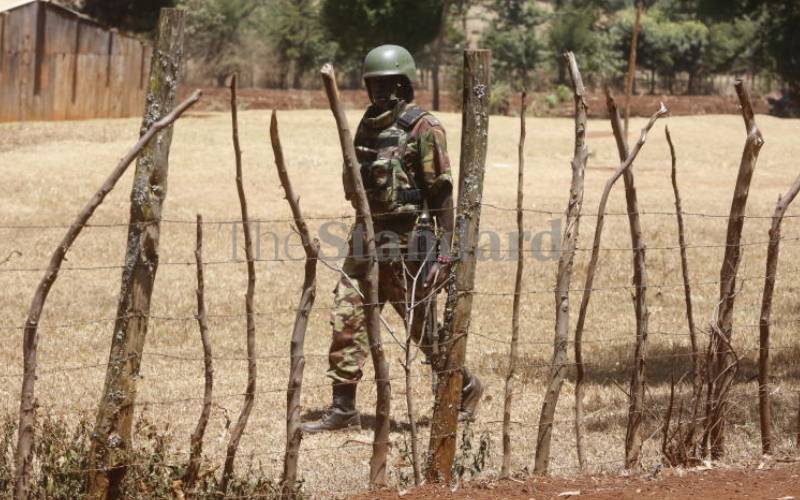×
The Standard e-Paper
Fearless, Trusted News

A police officer on patrol at Karnee Primary School. [Kipsang Joseph, Standard]
It was business-as-usual as the Kenya Certificate of Primary Education (KCPE) examination started yesterday, except in Baringo County. It is not certain that all the registered candidates wrote the Mathematics and English tests; those lucky to do did it as gunfire rent the air.